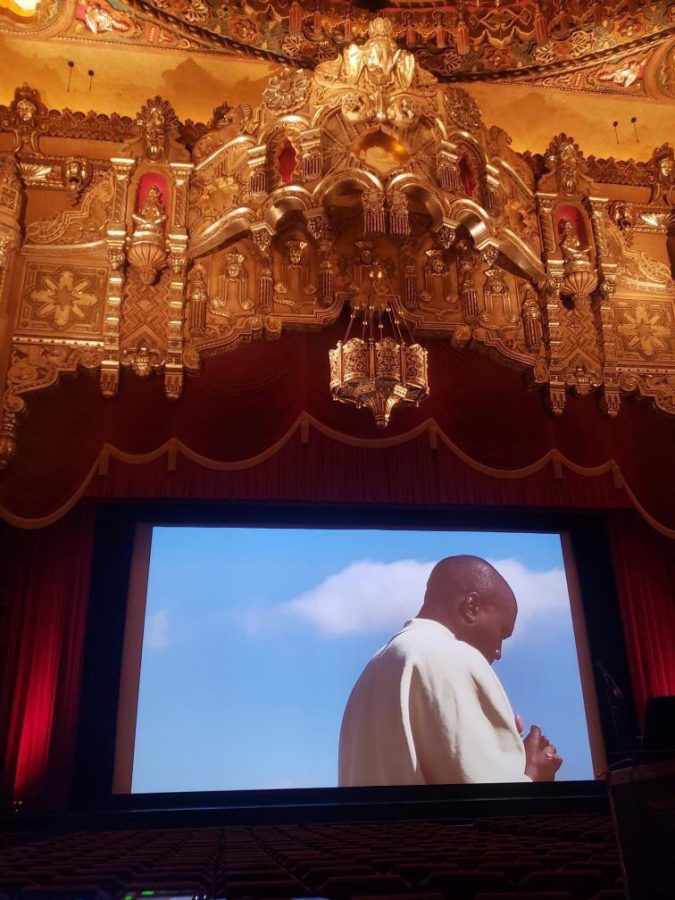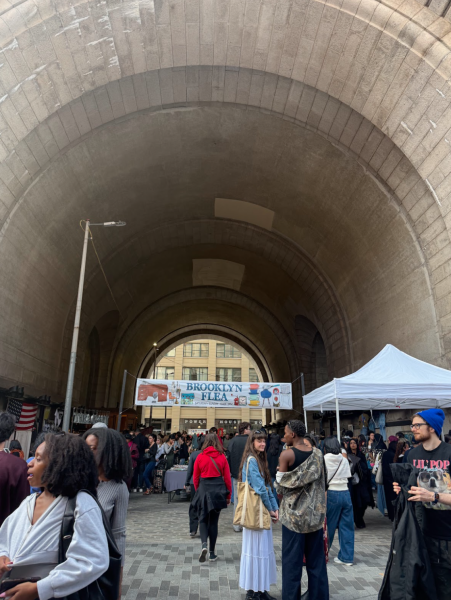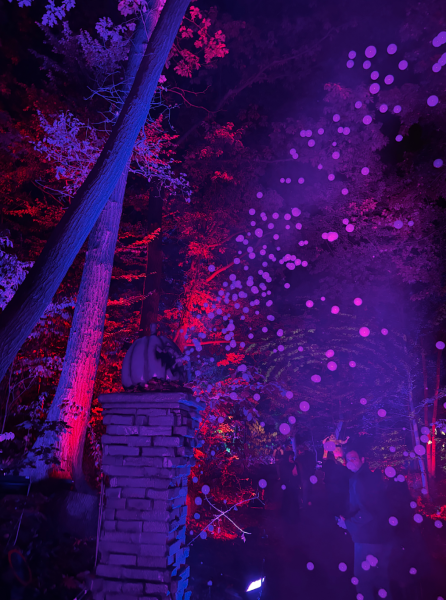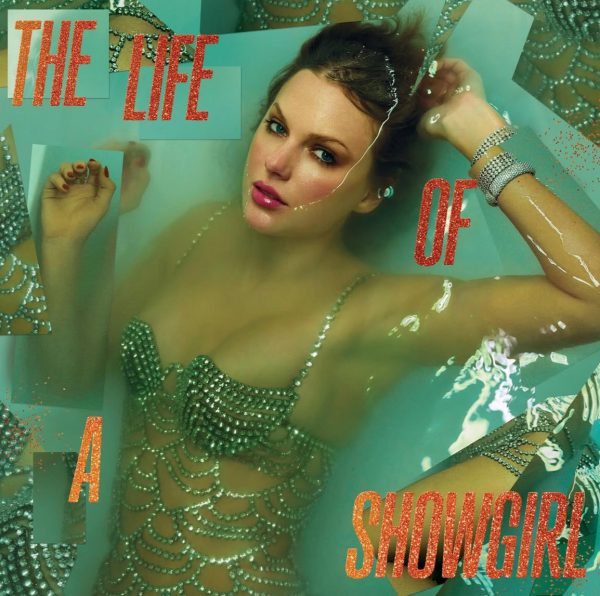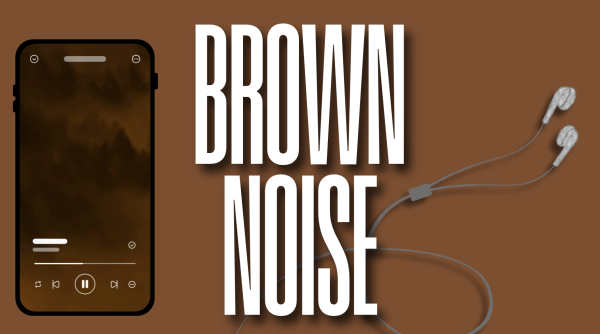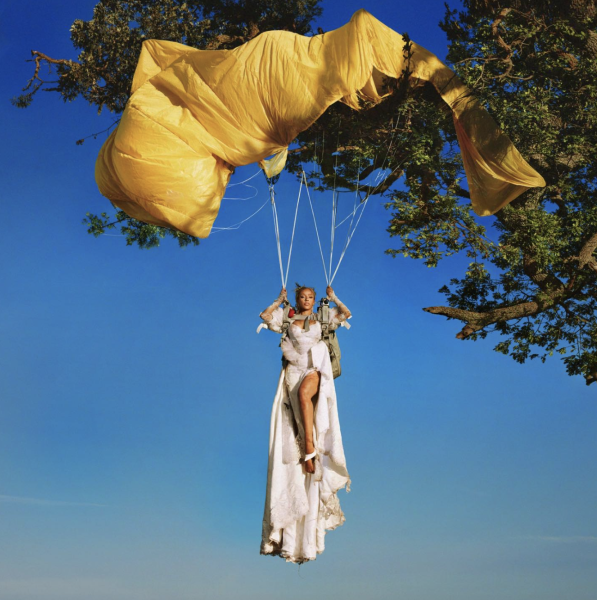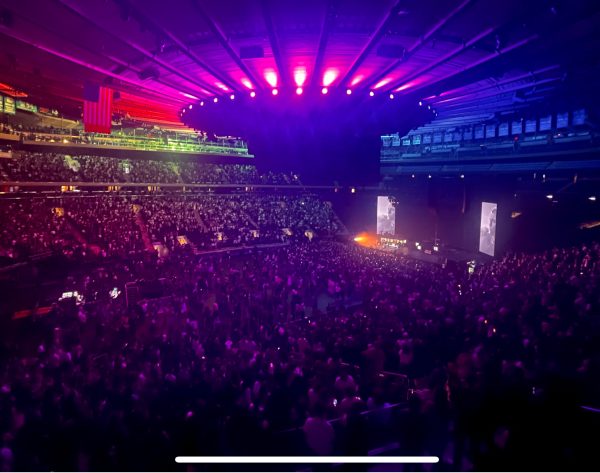Attending Kanye West’s NYC Live Listening Session: Unreleased Album “Jesus Is King” Is Euphoric Yet Contained
On Sunday, Sept. 29, I attended the New York City listening session for Kanye West’s new unreleased album, “Jesus Is King,” which apparently now may never be officially dropped.
After waiting in line for an hour, I was inside the United Palace theater among a sea of red velvet seats and eager, fanny pack-strapped Kanye West fans.
I arrived just as the behind-the-scenes cut of his IMAX movie, coming out in October, was starting. West played snippets of the film that are supposed to accompany “Jesus Is King.”
The scenes consisted of familiar gospel arrangements from his bi-weekly “Sunday Services” series played over fish-eye lens shots of nature and close ups of different members of the choir, with his children dancing in front of the screen serving as an adorable distraction.
That was it. At moments, this was absolutely genius, but at others, it felt drawn out and insubstantial. This shaky balance was the overall aura of the night.
After a surprisingly short speech from West, he finally played “Jesus Is King.” The crowd had been extremely rowdy beforehand, a flurry of “yerrs” circling the theater during the film. Yet when the album began, there was either dead silence or an anarchic roar of cheers.
The album had moments where West’s brilliance bled like an open wound, and others where it felt like West had locked himself in a box of musical limitations.
By trying to deliver this magnificent project, which obviously wasn’t finished — coupled with the fact that it circles around the topic of religion, which is complicated to talk about in today’s world — there are obvious constraints that West put on himself, which in turn made the art suffer.
In my interpretation, West focused on everything save the simple act of making music that will endure. This was evident on the first listen.
Sonically, the record had true high moments, where the mixture of gospel and modern day production, as well as West’s vision, came together to induce spine-tingling euphoria.
On the other hand, there was nothing as refreshingly futuristic as in his past projects. Previously, on tracks like “Feedback,” “On Sight” and “Hell of A Life,” West played around with effects and distortion in a way that left me in awe. Those moments were completely absent in this album.
There were moments during the listening session that left a sour taste in my mouth. For example, in one song, he made Chick-Fil-A’s opening hours into a hook.
There were some specific production choices that made this album stand out, like the lack of drums. West’s drums have always been the mitochondria of his production, so to hear him depend on them less was both rewarding and challenging.
The biggest drawback I found was the album’s lyrical content. Though I could not hear every word, it was obvious that religion was the epicenter of West’s focus, and it did not produce very interesting lyrics.
While this may arise from my disconnect from religion and the studies that surround it, I definitely noted that the quick-witted, emotionally-transparent Ye that we’ve come to love over the years was absent on this album. Lyrics should paint a vivid picture and encapsulate the crux of what an artist seeks to relay in an album; all I got from this is that West has found God again, and that Jesus has saved him from the sea of shortcomings he’s experienced in the last few years.
And while there were moments where his lyrics focused on the plights of African Americans, specifically police car stops and the 13th Amendment, it did not overshadow the other themes that became offensively repetitive. I could be wrong, since I only heard the album once and the teenagers around me were pretty distracting, but that is what I got from it.
The highlight of the project came in the final song, which simultaneously featured the reemergence of Clipse, the duo of No Malice and Pusha T and Kenny G and Kanye West’s relationship.
Clipse was one of my favorite music groups in college, and to hear them back together for the first time in a decade was the fanboy moment I needed.
Overall, there were moments of brilliance, where his Bible Belt raps came to fruition in wholly (holy) organic ways. It is a testament to his skill that he can create something like this with potentially minimal preparation. And at least in the version of the album that was played in New York, Kanye West was rapping extremely well. He brought out the flows and structures that worked so effortlessly well in songs like “Reborn” on the album “Kids See Ghosts.”
While the 16 year-old superfan in me wanted Kanye West to stun the world with a classic after his recent string of cataclysmic public situations — Trump affiliation, delaying the album for a year, etc. — it just wasn’t meant to be. “Jesus Is King” is far from awful, but also equally distant from a masterpiece.
The album taught me that I cannot expect anything from the Kanye West of the past. It’s just not the artist he currently is, and that’s okay. Artists age and content changes.





































































































































































































